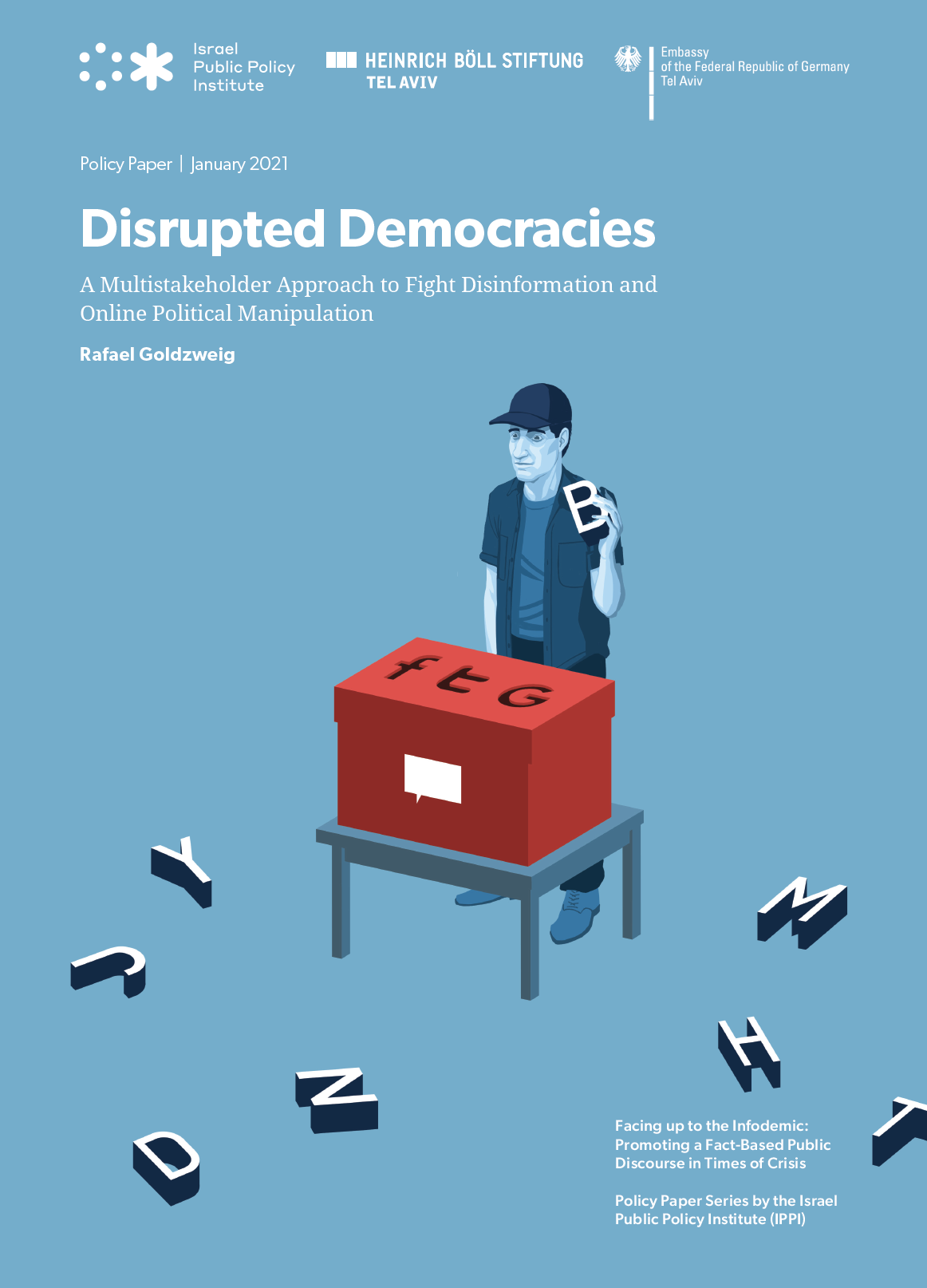Disrupted Democracies: A Multistakeholder Approach to Fight Disinformation

Share this Post
Who’s responsibility is social media platform regulation?
Personal data has been utilized in an unregulated environment throughout the past 20 years, which has created new business models based on said data to predict and mold behavior. This data has unlocked markets and their models optimized companies’ targeting strategies and even served in the interest of consumers, but at the same time, it has created possibilities for abuse. This is due to the fact that the same tools utilized to target consumers also targeted voters during key elections.
Public debates are increasingly moving to these platforms, where polarization and false information can mold and radicalize political views. Manipulation by utilizing disinformation as a strategy can work in the interest of the political and financial sector, which may affect the public’s understanding of important events such as elections or political debates.
In this policy paper, Rafael Goldzweig explores the challenges brought on by the transition of the public sphere to online spaces that are designed and moderated by private companies. In addition, this paper scrutinizes the information gap between tech companies, regulators, and civil society, arguing that these sectors cannot provide the answers to complex problems alone. Specifically, this paper focuses on the European legislative debate and a multi-stakeholder approach as a way to increase societal resilience to disinformation and create foundations that can effectively deal with online threats in the future.
This policy paper found that the state plays a crucial role in standardizing rules for operations for different tech platforms, demanding transparency standards, and creating an ecosystem that can serve as a system of checks and balances for what occurs on online platforms. Based on this, the following recommendation was outlined:
- Civil society, researchers, and fact checkers must have a system in which they can cooperate and have their voices be represented. By doing so, civil society can perform tasks to ensure that malicious actors are unsuccessful in their efforts to provide users with disinformation and consequently avoid the radicalization of opinions.
————————————————————————————————————————————————–
The Israel Public Policy Institute (IPPI) serves as a platform for exchange of ideas, knowledge and research among policy experts, researchers, and scholars. The opinions expressed in the publications on the IPPI website are solely that of the authors and do not necessarily reflect the views of IPPI.
Download Full Publication
Policy Paper - Disrupted Democracies: A Multistakeholder Approach to Fighting Disinformation

Share this Post

Leveraging the benefits of smart mobility via an integrated data platform
The Role of Big Data and AI in Sustainable Urban Development Increasingly abundant big data and artificial intelligence…

Who’s to blame when artificial intelligence systems cause damage?
Introduction: How Can AI systems Cause Damage? Artificial Intelligence (“AI”) systems are used in various contexts of our…

Fashion Sustainability: Achieving Circularity in Clothing Consumption
Thorstein Veblen, a Norwegian economist, and sociologist, first coined the term “conspicuous consumption” back in 1899. He used the…
